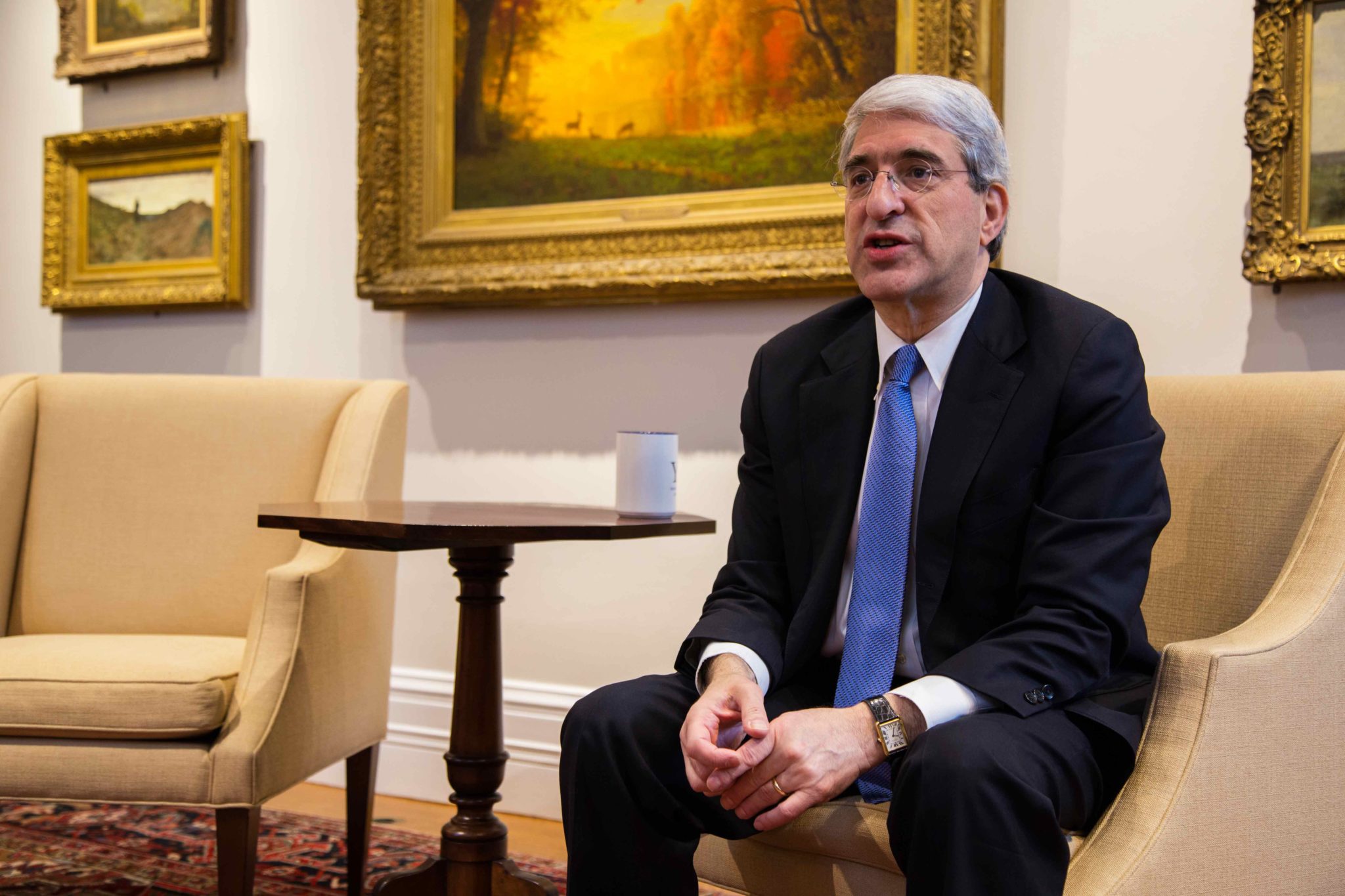
University President Peter Salovey announced Wednesday that Yale plans to overhaul its culture and make a renewed commitment to issues of diversity, equity and inclusion over the next five years.
Salovey’s email to the Yale Community outlines nine chief goals ranging from recruiting and retaining a more diverse faculty to reforming the Yale Police Department. Additional priorities include incorporating anti-racism work into academics at Yale and focusing the ongoing capital campaign on providing additional financial aid for students. Salovey’s announcement comes on the heels of numerous instances of police brutality against Black Americans and amid a national reckoning with systemic racism.
The President’s Committee on Diversity, Inclusion and Belonging, which was formed last January and has examined ways the University could create a more inclusive culture, formulated the initiatives. University Secretary and Vice President for University Life Kimberly Goff-Crews ’83 LAW ’86 and Chair of Internal Medicine and Vice Provost for Faculty Development and Diversity Gary Desir MED ’80 chaired the committee.
“I think there are no major obstacles for us to get the work done,” Desir said. “What’s very encouraging to me is the willingness and the passion that people have expressed and their desire to start as soon as possible.”
Now that the committee has outlined its high-level goals, their next focus is implementation. Each unit of the University will develop plans and protocols to assess progress in conjunction with the deans and vice presidents.
Salovey will require all schools and departments to develop DEI and belonging plans, though the specifics will be left up to the schools, Goff-Crews said. The plans will be assessed based on a forthcoming rubric.
“What you focus on is what you achieve,” Goff-Crews told the News, adding that University leaders will meet regularly to discuss their progress on individual unit plans.
In an interview with the News last week, Salovey identified DEI and climate change as the two next major challenges Yale has to confront.
To monitor progress towards its initiatives, the University will look at indicators including the number of diverse faculty and students it is recruiting. One concern, Desir said, is that people may be discouraged if change is not immediate.
“What the committee’s proposing is to actually look at culture and enhance it. Culture change is something that always takes time,” Desir said. “We are cognizant of the fact that we may not see tangible results in the first year, therefore we will be tracking leading indicators — changes that precede a desired outcome.”
One of the initiatives Salovey announced is the development of The Center for Law and Racial Justice in the Yale Law School. The Center will launch this year, directed by J. Skelly Wright Professor of Law James Forman Jr., and will examine the legal aspects of racial justice.
The ongoing COVID-19 pandemic briefly disrupted the committee’s work, but it continued meeting throughout the spring. During the process, Desir and Goff-Crews provided periodic updates to Salovey. While the committee met, subcommittees of faculty, staff, students and alumni also discussed the issues.
When the committee submitted its suggestions to Salovey last month, all 18 faculty and staff members met with Salovey, the University Cabinet — made up of Yale’s vice presidents and deans — and the Yale Corporation to explain what it was recommending and why.
The initiatives affect almost all areas of the University. To diversify the senior leadership staff, the University plans to create a pipeline for junior staff to reach high-level positions.
“I know of no plans to increase senior leadership members but our focus will be on enhancing the diversity of people prepared for leadership positions,” Goff-Crews told the News.
Instead, Yale will start a staff-leadership initiative in which deans and officers nominate junior faculty for a training program to prepare them to fill senior leadership positions when they become available.
To recruit and retain more diverse faculty members, the University pledged an additional $85 million to the Faculty Excellence and Diversity Initiative, which was started in 2015, last fall. As of 2019, 64 percent of Yale’s ladder faculty are white, while only 3.2 percent of ladder faculty were Black or African American. Twelve years before, the percentage was almost identical, as 3.4 percent of ladder faculty were Black or African American according to a report from Local 33, Yale’s graduate student union.
Activists have long urged the University to increase the diversity of its faculty and staff. Now, Salovey has asked deans and department chairs to evaluate and improve mentoring programs for faculty members.
Additionally, the University will take steps to further incorporate issues of race and racism into the academic curriculum, Salovey said in a prior interview with the News, including grappling with the University’s past. History professor David Blight will conduct a comprehensive study of Yale’s ties to both slavery and abolition.
“We should be exemplary in our focus on studying ways to reduce racism, on educating around the relevant history of slavery generally and our own University’s part of that history, and then in our own practices,” Salovey said in the interview.
In regards to policing at Yale, Salovey’s message held firm that Yale would “lead the way in transforming policing on college campuses.” At its most recent meeting, Yale Corporation members received an update on policing at Yale. Administrators and trustees held phone conversations on the topic this past summer, Salovey said, though they have yet to make any new decisions.
Yale is currently implementing the reforms outlined in an evaluation by 21st Century Policing, an independent firm that evaluates police forces. Now, a committee is meeting to discuss how to “imagine the kind of police force we have at Yale,” Salovey said.
Still, student activists have demanded the University immediately disarm its officers and begin the process of defunding and dismantling the force. The different viewpoints will play out in a meeting between top administrators and members of Black Students for Disarmament at Yale within the next two weeks.
The Committee submitted its recommendations to Salovey on Sept. 14.
Rose Horowitch | rose.horowitch@yale.edu








